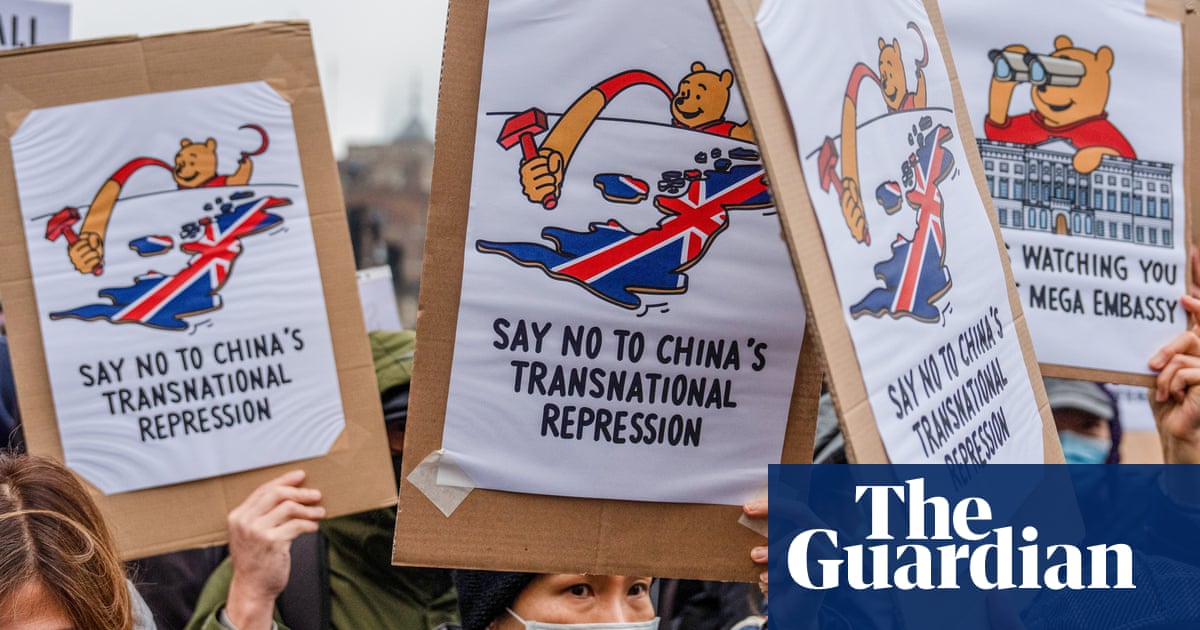A US intervention over China’s proposed new embassy inLondonhas thrown a potential resolution “up in the air”, campaigners have said, amid concerns over the site’s proximity to a sensitive hub of critical communication cables.
The furore over a new “super-embassy” on the edge of London’s financial district was reignited last week when the White House said it was “deeply concerned” over potential Chinese access to “the sensitive communications of one of our closest allies”.
The Dutch parliament has also raised concerns about Beijing’s ideal location of Royal Mint Court, on the edge of the City of London, which has so far failed to gain planning permission.
The ultimate decision lies with the government, which has taken control over the stalled decision after permission was initially rejected on security groundstwo years ago.
Labour is expected to make a decision over theproposed 2-hectare (5-acre) siteopposite the Tower of London after an inquiry was held earlier this year.
Those who have long campaigned against the move over security concerns have criticised the row’s revival, saying it has sidelined their views.
“They seem to be struggling to make the right decision,” said Dave Lake, the chair of the local residents’ association and lead of the local campaign.
“It’s got too political now. It was a straightforward inquiry but because of this, that and the other, particularly the Americans getting involved, it’s made it all up in the air.”
The intervention comes after the signing of a US-UK trade deal with Donald Trumpat the G7 summitin Canada this week.
Before the deal was signed, a US official told the Sunday Times: “The United States is deeply concerned about providingChinawith potential access to the sensitive communications of one of our closest allies.” In the Netherlands, MPs have raised similar security concerns.
A state department official said they had full faith in the UK to ensure the safety and security of their diplomatic mission in London.
Nevertheless, for those who have long opposed the embassy site, what was once a campaign focused on security concerns from local residents and communities in exile has been overtaken by geopolitics.
Lake has lived near the proposed site, bought by the Chinese governmentin 2018 for £255m, for 35 years. On Saturday he attended thelatest demonstrationthere, fearing that building an embassy could attract further demonstrations and political attacks.
Recent concerns have shifted to cables underneath the sites, which serve as an arterial link between the City of London and Canary Wharf, London’s two financial centres.
Lake said: “We know there are cables running underground, and we know the capabilities of the Chinese. In the early conversations it was never part of it, it was just completely our security.”
Charles Parton, who spent 22 years working in and on China as a UK diplomat and has advised the UK parliament’s foreign affairs committee, said it was “a big problem” if there were very sensitive cables running directly under the site.
He said: “There are two ways to be seen with it: one way is to say, well, you can’t use the site; the other is to say reroute the cables. How difficult is it to reroute the cables? I don’t know the answer to that question.”
Parton said the British embassy had been wanting to rebuild its Beijing site for as long as he could remember. The building had not been fit for purpose for several decades, he said, and the wishes of both countries for newer embassies was “normal diplomatic business” as relations had greatly expanded.
Sign up toFirst Edition
Our morning email breaks down the key stories of the day, telling you what’s happening and why it matters
after newsletter promotion
“There are many things we should worry about with the Chinese,” said Parton, mentioningBeijing’s geopolitical agendaand strangle onrare earth exports.
“But we need to choose the important ones and not the unimportant ones. And all goes back to the nature of these cables. What is crucial is the security issue. If that is resolved satisfactory, then why shouldn’t we both go ahead and build new embassies?”
The government, which hassaid it is committedto “robust” and “evidence-based” decision-making, is expected to issue its verdict by 9 September.
Among those worried that the embassy plans will go ahead is Rahima Mahmut, a leading Uyghur activist. “It is really unbelievable when not only the US government but also theDutch governmentexpress their concerns,” said Mahmut, who lives in exile in the UK.
Also concerned over increased surveillance and espionage isSimon Cheng, the founder ofHongkongers in Britainand a former Hong Kong consulate worker.
Cheng, who in 2023 hada bounty issued for his arrest, said: “The UK government need to think twice because it’s not only just the closest ally that has given a warning and grave concern, but also that to many other people, especially us as part of the exile community … we have concerns about our security here.”
A spokesperson for the Chinese embassy said the planning application had taken UK policy into consideration as well as the views of all relevant parties.
Building a new embassy would help them “better perform” the responsibilities of “mutual beneficial cooperation” between the two countries, they added.
The spokesperson said: “Anti-China forces are using security risks as an excuse to interfere with the British government’s consideration over this planning application. This is a despicable move that is unpopular and will not succeed.”
